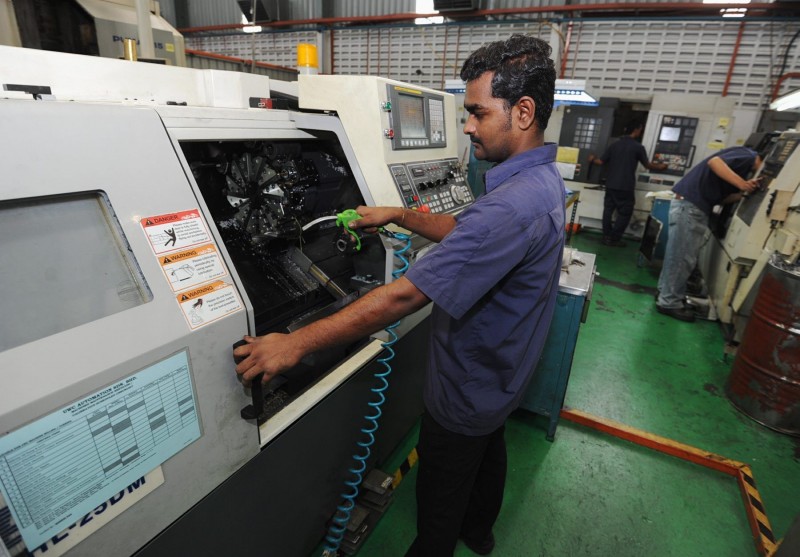
Image credit: The Star
PETALING JAYA: Small and medium enterprises (SMEs), the bedrock of entrepreneurship in Malaysia, still have some way to go to ensure their own sustainability.
This weakness has never been so evident until Covid-19 swept across the globe from 2020.
Since the pandemic began, more than 150,000 SMEs in Malaysia have shut down, leaving 1.2 million people jobless.
Experts say the lack of business sustainability has made them more vulnerable to uncertainties, a situation that could have been prevented had they made it a priority to adopt their own set of sustainability goals in their operations and management practices.
This failure has proven costly to the overall business climate in Malaysia, according to Sunway University’s Koh Hock Lye.
He pointed out that SMEs are pivotal to the well-being of the Malaysian economy and society given that they provide jobs to 66% of the workforce and they contribute 40% to the GDP.
“SMEs were particularly vulnerable to the effects of the pandemic. Restricted access to resources, high unemployment, record-level inflation, interest rate hikes and persistent business closures caused by the lockdowns have combined to leave an adverse impact on them,” he told FMT Business.
Amanda Yeo, analyst at local think tank Emir Research, said most SMEs come up short in ensuring sustainability because they fear it is too costly.
“SME operations are small by nature, so there is limited funding, making them unable to upgrade technology and enhance staff skill sets,” she told FMT Business.
The lack of initiative among SMEs to adopt practices that ensure greater sustainability in their operations also stems from the fact that Malaysian consumers are very cost-conscious.
For instance, the average consumer may shun sustainably manufactured products rather than see their long-term value and benefits.
“This has been exacerbated by the rise in food prices, making it difficult for most people, especially those with limited disposable incomes, to place importance on products that are environmentally friendly,” Yeo said.
She said the imposition of the minimum wage requirement has also made it difficult for SMEs. “Already, they have been forced to shrink their workforce to keep operating costs down,” she pointed out.
Yeo said the prevailing difficulty in hiring foreign workers has aggravated the labour shortage problem, resulting in lower production and hence lower supplies.
Koh pointed out that assisting SMEs to enhance their resilience and sustainability is critical to the nation’s socio-economic recovery post pandemic.
Small and Medium Enterprises Association (Samenta) chairman William Ng conceded that SMEs should reduce their reliance on labour.
However, he said, there are other factors that also affect their business sustainability and most of those are beyond their control.
“For instance, political uncertainties and certain government policies tilt the competition in favour of government-linked companies, which are larger and better funded than us,” he told FMT Business.
Ng said Samenta has responded by helping SMEs to scale up the productivity ladder while investing in automation and digitalisation.
On the bright side, a number of parties have already put in place measures to ensure that the progress made in ensuring sustainability over the previous years will not be jeopardised.
For instance, Bank Negara Malaysia has invested RM1 billion in its Business Recapitalization Facility and Low Carbon Transition Facility initiatives to encourage and support SMEs in adopting strategies to ensure business resilience.
Financial and asset management services provider BNP Paribas helps its clients promote and achieve their sustainability targets through the ESG (environmental, social and governance) processes.
Consulting services provider Ernst and Young provides support to the UN Global Network Malaysia and Brunei in its effort to guide micro SMEs through their sustainable development goals requirements.
As Koh pointed out, these initiatives must be executed and monitored closely to ensure that these businesses not only survive Covid-19 but come out stronger and more sustainable so that they can handle future pandemics.
While the future of SMEs remain cloudy, indications are that there is sunshine in the coming days.
Source: https://www.freemalaysiatoday.com/category/highlight/2022/07/18/obstacles-beset-smes-on-the-road-to-business-sustainability/

